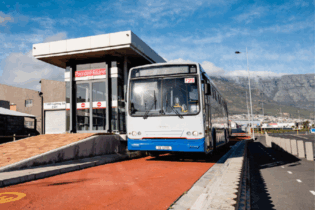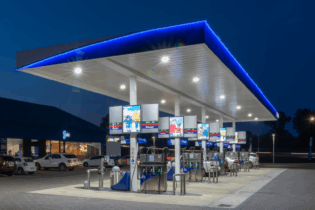The proposed truck ban from public roads will have another negative impact on South Africa’s gateway status.
By Patrick Corbin We, as the Johannesburg Chamber of Commerce and Industry, are vitally concerned about promoting South Africa as a gateway into Africa. The proposed truck ban during peak hours, if effected, will result in more cargo being diverted. The first impact we’ll see will be the creation of a congestion surcharge at the ports – there is no question about that. Anything that delays movement in the ports of Durban, which is already very sensitive to fluctuations, is going to have a tremendous economic impact. And let’s not forget about the costs to the economy when these vehicles don’t operate 24/7. Who is going to pay the extra cost of delivering cargo? At the end of the day, it’s going to be the consumer. The minute we start increasing the cost of moving cargo, we are taking exports out of the market. Some of our exports are very price-sensitive. The value of South Africa’s exports is generally half the cost – or the same cost – as the logistics. Everything done to reduce the cost of logistics increases the volume of trade we can do. A truck ban will unquestionably increase the cost of doing business in South Africa.On top of all of this, we’ve got an impending Customs Bill that is intent on closing down inland ports, which we’re still fighting. If enacted, it will move more containers off rail and on to the road. A lack of multimodal transport means a lack of seamless transport.
When we were deregulating the competition between rail and road transport in 1985, the issue then was bringing insurance companies to the party. When insurance companies invalidate an operator’s insurance claim in the event of an overloaded vehicle having an accident, you’ve moved a long way towards solving your overloading problem. The reason we got back from the insurance companies then was “we can’t do that because of customer relations.” When we got involved in containerisation in 1976/77, we had 80% of the boxes moving inland, from Durban, by rail. What’s happened over the years is that the investment in containerisation, from Transnet’s point of view, has probably been 2% while the growth in containers for many years has been around 10%. So, we now have a situation where 20% of the boxes are moved by rail. The rail link to the port of Durban is completely inadequate, and the track reduces to a single line in certain areas. The big problem is the reliability dependability of the rail service. Transnet needs to get that corridor working, reliably so that we can commit our boxes. It’s cheaper and, so, we actually do want to use the rail service. We support Transnet. Transnet used to belong to the Department of Transport. It was only moved to the Department of Public Enterprises because it was going to be commercialised in a step towards privatisation. But now that privatisation is off the agenda, let’s move Transnet back to the Department of Transport. The author: Patrick Corbin is the director of the International Chamber of Commerce South Africa.





